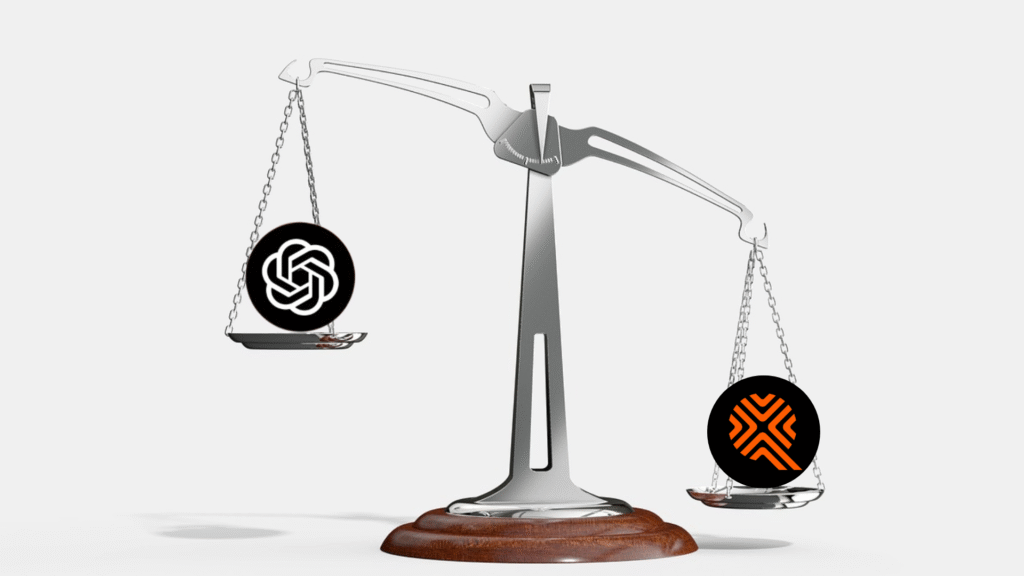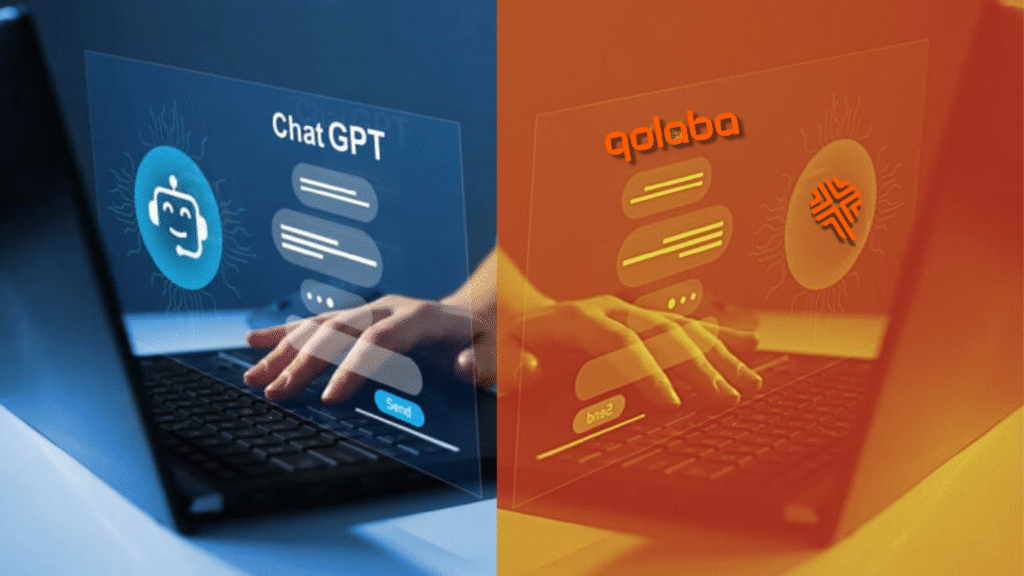ChatGPT Teams launched as OpenAI’s answer to business AI collaboration, promising team-friendly features at $25 per user monthly. For many organizations, it seemed like the natural evolution from individual ChatGPT Plus subscriptions.
But after real-world implementation, teams are discovering limitations that unified AI platforms like Qolaba address more comprehensively.
Here’s a feature and cost comparison based on actual business requirements.
Pricing Model Comparison

ChatGPT Teams: Per-Seat Structure
- $25 per user monthly
- Annual commitment for cost optimization
- Fixed costs regardless of usage patterns
- Often restricted to senior staff due to cost concerns
Qolaba: Usage-Based Flexibility
- Credit-based pricing aligned with consumption
- No per-seat penalties for team scaling
- Democratic access without per-user cost barriers
- Natural cost optimization during variable demand periods
Real-World Cost Impact
25-Person Marketing Team Scenario:
ChatGPT Teams Cost:
- 25 users × 25=25=625 monthly ($7,500 annually)
- Reality: Often restricted to 15 senior users to control costs
- Effective cost per active user: $41.67 monthly
Qolaba Alternative:
- Usage-based consumption across all 25 team members
- Full team access without artificial restrictions
- Typical cost range: 40-60% lower than per-seat equivalents
AI Model Access and Diversity

ChatGPT Teams: Single-Model Focus
- Primary access: GPT-4 and GPT-3.5 variants
- Consistent experience within OpenAI ecosystem
- Model limitations for specialized tasks requiring different AI approaches
- Vendor dependency on OpenAI’s development roadmap
Qolaba: Multi-Model Architecture
- 60+ AI models accessible through unified interface
- Specialized models for different content types and use cases
- Automatic model optimization for task-specific requirements
- Vendor independence reducing platform lock-in risks
Practical Example: ChatGPT Teams uses GPT models for all content generation, while Qolaba automatically routes to optimal models for different content types, languages, and complexity levels.
Workflow Integration Capabilities

ChatGPT Teams: Conversation-Focused
- Chat-based interface optimized for conversational AI interactions
- Team sharing of conversations and prompts
- Basic collaboration through shared workspaces
- Limited integration with broader content workflows
Qolaba: Comprehensive Workflow Platform
- Integrated content pipeline from ideation through final delivery
- Multi-format content creation in unified workflows
- Project-based organization with shared context across team members
- Advanced collaboration with role-based access and approval workflows
Business Process Impact
Marketing Campaign Development:
ChatGPT Teams Workflow:
- Create campaign concepts in ChatGPT conversations
- Export content to other tools for design and formatting
- Manual coordination between team members
- Separate tools required for non-text content creation
Qolaba Integrated Workflow:
- Campaign development from brief through final assets
- Seamless transitions between research, writing, and optimization
- Team collaboration with shared project context
- Unified output management and approval processes
Real-World Implementation Scenarios

Growing Creative Agency (30-person team)
ChatGPT Teams Reality:
- $9,000 annual cost for full team access
- Often restricts access to 18-20 senior staff to control costs
- Junior talent excluded from AI skill development
- Fixed costs continue during slow periods
Qolaba Alternative:
- Usage-based costs fluctuate with project demands
- Full team access encourages skill development across all levels
- Natural cost optimization during slow periods
- Enhanced capabilities beyond single-model limitations
Consulting Firm with Variable Projects
ChatGPT Teams Limitations:
- Per-seat costs make temporary team scaling expensive
- Difficulty providing AI access to contractors and specialists
- Limited specialized capabilities for research-intensive projects
Qolaba Advantages:
- Flexible access for temporary team members without subscription overhead
- Specialized AI models for research, analysis, and industry-specific requirements
- Project-based usage tracking and cost allocation
Feature Comparison Summary

Content Creation:
- ChatGPT Teams: Strong conversational AI, consistent GPT model experience
- Qolaba: Multi-model optimization, specialized content types, integrated workflow management
Team Collaboration:
- ChatGPT Teams: Conversation sharing, basic team workspaces
- Qolaba: Project-based collaboration, role-based access, advanced approval workflows
Cost Management:
- ChatGPT Teams: Predictable per-user costs, annual payment options
- Qolaba: Usage-based optimization, flexible scaling, cost-per-value alignment
When Each Platform Makes Sense

ChatGPT Teams Works Well For:
- Simple use cases focused primarily on conversational AI
- Consistent team size with uniform usage patterns
- OpenAI model preference for all organizational AI needs
- Budget predictability prioritized over cost optimization
Qolaba Provides Superior Value For:
- Diverse AI requirements beyond single-model capabilities
- Variable team sizes or seasonal usage patterns
- Cost optimization priorities and democratic access goals
- Comprehensive workflow integration requirements
- Multi-departmental AI adoption with different use cases
The Strategic Choice

Choosing between ChatGPT Teams and Qolaba isn’t just a feature comparison—it’s a strategic decision about AI adoption philosophy.
ChatGPT Teams represents focused, single-vendor AI access with predictable costs and straightforward implementation.
Qolaba offers comprehensive AI capabilities with flexible economics and integrated workflow management.
The key question: Does your organization benefit more from AI tool simplicity or AI capability optimization?
Try Qolaba‘s comprehensive AI platform to experience the difference between single-model limitations and multi-model possibilities.





